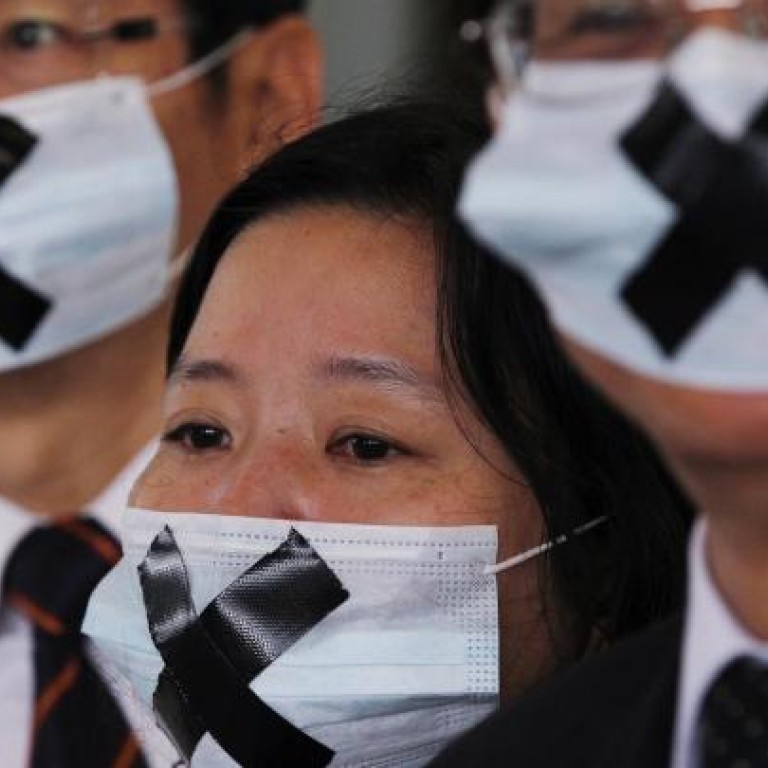
Lawmakers reject call for public debate on gay-bias law
The issue of discrimination based on sexual orientation is too hot a subject for lawmakers
A motion calling for public debate on a law to ensure equal rights for people of all sexual orientations was voted down by lawmakers in an often heated session yesterday.
While most legislators agreed initially that public consultation on the issue would be beneficial there was deep division on whether a law was needed.
Supporters of a law said it would protect against discrimination those with non-mainstream sexual preferences.
Opponents said it was a moral issue, arguing that a law could inhibit people from speaking out on the issue and might trigger reverse discrimination.
Religion featured strongly on both sides of the argument, as legislators quoted the Bible and prayers and professed their religious affiliations.
The motion, proposed by Cyd Ho Sau-lan of the Labour Party, called on the government to "expeditiously" launch a public consultation.
Raymond Chan Chi-chuen of People Power, the first openly gay lawmaker anywhere in China, appealed to his fellow lawmakers to end discrimination in the workplace, in schools and in society.
"This is only a lowly and mild plea to open communication in society through public consultation," Chan said. "We are not even asking for legislation of controversial areas at the moment."
The secretary for constitutional and mainland affairs, Raymond Tam Chi-yuen, said there were two problems with the motion - its timing and the controversial subject matter.
"While we need to address [discrimination], it's important to see whether it is the right time for these discussions," he said. While Hong Kong was a tolerant and open society, traditional views of marriage and family were still strong.
He admitted, though, that the government should put more resources into promoting equality and ending discrimination.
During the debate, in which 28 lawmakers spoke, James To Kun-sun of the Democratic Party said: "Discrimination of any sort is not acceptable."
But he said the government would have to tread carefully when it came to legislation.
Abraham Razack of the Business and Professionals Alliance said it was a moral issue that would not be best solved through legislation.
Ho said she was disappointed that her motion had been voted down and accused the government of having a closed mind and not doing its duty.
A spokesman for Pink Alliance, a network of rights groups for sexual minorities, said: "The defeat shows the government and certain legislators are in the Stone Age and oblivious to world trends."
Ho released results of a University of Hong Kong poll she commissioned in which 1,022 people were questioned. Some 75.8 per cent felt there was discrimination against people with different sexual orientations.
Almost two-thirds believed there should be legislation to protect such people against discrimination. On gay marriage, 39 per cent opposed the idea, while 32.7 per cent supported it.

